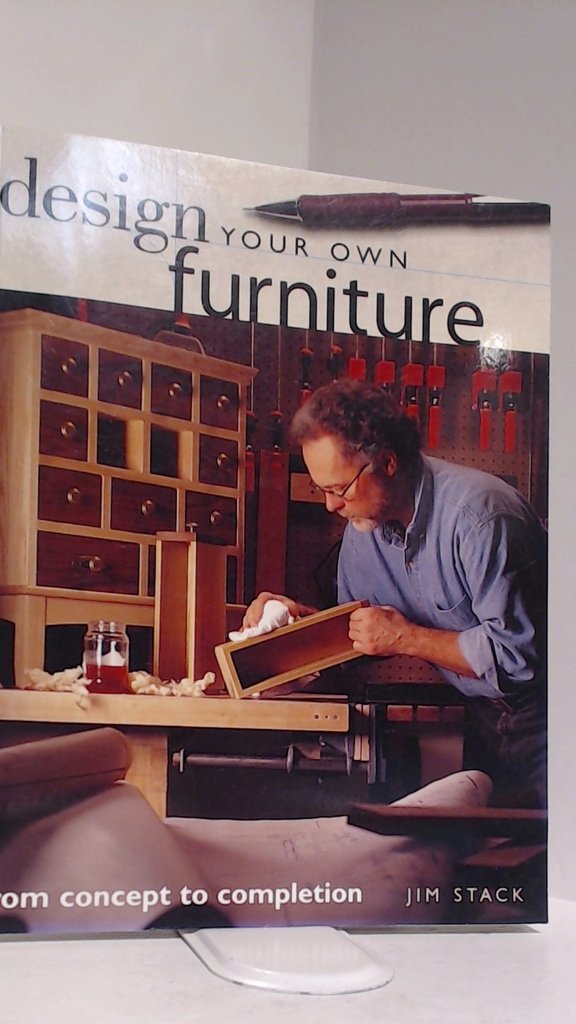Create a one-of-a-kind, wholly original project; Design a piece of furniture that meets a very specific or unique need; Replicate a project working from a single photo; Scale a piece of furniture so that it fits exactly where desired
Jim Stack includes all the instructions, photos and detailed drawings woodworkers need to master design techniques with style, ease and confidence!
Read more









Average retired guy –
After reading the two reviews, I thought this would be a great introduction to furniture design. I was expecting information such as generally accepted proportions of furniture elements, possibly a discussion of the application of the golden rectangle, and other non-obvious thoughts. The information is very high-level and broad. This book is so light on real information that I consider it useless.
siddious –
There is almost no information in this book that helps you actually build furniture. I was looking forward to information on possible tools, reasons to use certain wood, etc.. but was disappointed with the lack of the quality of this information. Not worth a buy.
Thomas Eberhard –
This is a beautiful book, nicely laid out, with inspiring photography. The book has 12 chapters, the first 6 cover general design and construction topics, and the remaining 6 each look at a particular type of furniture.
The main reason I bought the book was to gain some insight into the design process. Chapter 2 is titled “creating a drawing”, and covers this by looking at how the author drew/designed and eventually built a table. The chapter is helpful, but a bit short. I would have liked another example. Design seems to be an iterative process, where you draw something and see what works and doesn’t, fix and draw again. I would have liked some examples of drawings that show this iterative process, and what criteria are used to determine what works and what doesn’t. But maybe that’s where the skill of the designer comes in and this can’t really be taught in a book.
The last 6 chapters showcase some nice pieces, and have some comments on them. Again, it would have been nice to have examples of the iterative design process used to get to the final result. And to correct another reviewer, some of the pieces are pieces by the editors of Popular Woodworking.
My guess is that the book would have been much more expensive if each type of furniture had an exmple of the design process. Study the second chapter carefully, and apply it.
I highly recommend this book to people that are interested in going beyond building after plans. I have begun work on a custom bookcase for specific books, and have found the experience very rewarding.
Mr K T –
Some things never get old and this book is one of those – with tried and tested techniques it takes you through the process of creating great furniture for generations.
Rosebudspapa –
I expected information about design, but this is just a self serving “I am good at what I do” book. I am sure he is good but there is little or no information about how to actually desigh furniture. No proportions, no instruction except make your mistakes on paper by sketching first. A waste of good money.